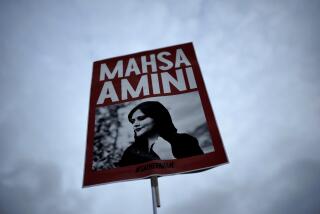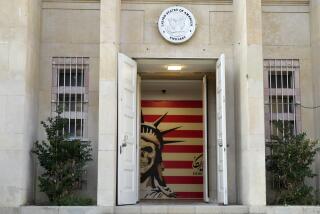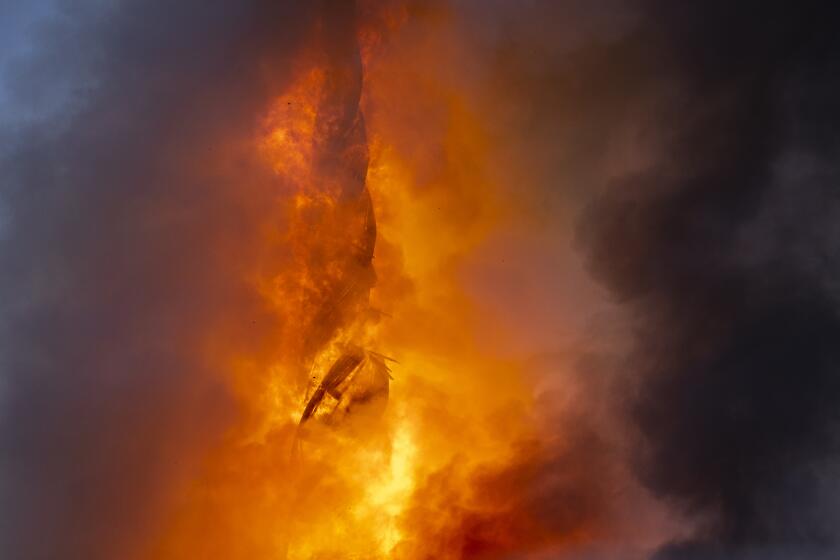Iranian parliament pursuing lawsuit against CIA for 1953 coup
A week after declassified CIA documents came to light verifying that the U.S. spy agency was behind a 1953 coup in Iran, parliamentarians in the Islamic Republic voted Tuesday to fast-track a lawsuit against Washington for interfering in Iranian domestic political affairs.
Sections of an internal CIA history of the operation that ousted Iranian Prime Minister Mohammad Mosaddeq and paved the way for the return of the exiled Shah Mohammed Reza Pahlavi were declassified two years ago but made public only Aug. 19 by the National Security Archive, an independent documentation research center in Washington.
The shah’s return was followed by years of brutal political reprisals and confrontation, leading to the 1979 Islamic Revolution and the shah’s second flight into exile. The deposed monarch took refuge in several countries before being granted a brief U.S. stay for medical treatment that poisoned to this day relations between Washington and the religious leadership in Tehran. The shah died in Egypt in 1980.
Iranian lawmakers will begin Wednesday debating how to take the U.S. government to international court following a vote by the 290-seat parliament that was broadcast on state radio and reported by Iran’s Press TV. The plan to fast-track a lawsuit received 173 votes.
“The military coup that overthrew Mosaddeq and his National Front cabinet was carried out under CIA direction as an act of U.S. foreign policy, conceived and approved at the highest levels of government,” reads a previously excised section of the CIA’s internal account of the 1953 coup, titled “The Battle for Iran.” The relevant admissions were carried by the English-language Tehran Times on Tuesday in its report of the parliamentary action.
The CIA history of the coup, code-named Operation TPAJAX, casts Mosaddeq as a nationalist leading his country into economic and political turmoil and a threat to Britain’s lucrative oil industry built up in Iran over half a century.
“The 1953 coup remains a topic of global interest because so much about it is still under intense debate. Even fundamental questions — who hatched the plot, who ultimately carried it out, who supported it inside Iran and how did it succeed — are in dispute,” wrote Malcolm Byrne, the archive’s director of research, who pursued the declassification of the coup history through an 11-year Freedom of Information Act request.
It was unclear from the Iranian and other media reports whether the recent disclosures about CIA orchestration of the coup did more than confirm what had long been suspected or if they have refreshed a dormant dispute between the United States and Iran.
Iran’s newly inaugurated President Hassan Rouhani made an issue during his election campaign this year of seeking relaxation of the tensions between his country and the West.
“Clearly this is more political theater than international jurisprudence,” said Abbas Milani, director of Iranian studies at Stanford University. “The idea that, precisely at this time when the new government is trying to improve relations, that they would raise the issue of potential damages -- it just opens a Pandora’s box.”
If Iran were to make an international case for compensation for U.S. backing for the coup 60 years ago, it could then be vulnerable to U.S. claims for damages inflicted by the 1979-81 hostage crisis and asset seizures, Milani said.
“I don’t think this lawsuit is going to go anywhere other than to end up as an empty gesture by frustrated members of the conservative camp that have lost an election badly and are reeling from the fact that people have said a resounding no to their policies,” Milani said.
ALSO:
Britain awaits another birth - this one a panda
Quiet pyramids, empty hotels: Egypt unrest takes a toll on tourism
Civilians becoming targets in Afghanistan -- a dozen slain by Taliban
Twitter: @cjwilliamslat
More to Read
Start your day right
Sign up for Essential California for news, features and recommendations from the L.A. Times and beyond in your inbox six days a week.
You may occasionally receive promotional content from the Los Angeles Times.







